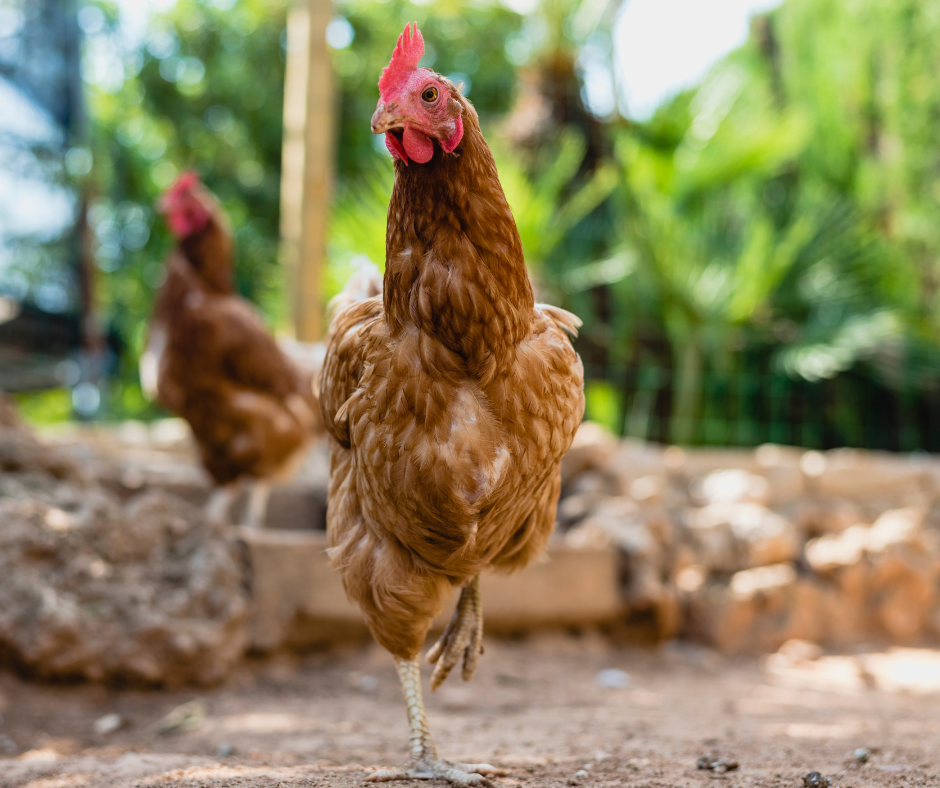
WEAKLEY COUNTY, Tenn. — Weakley County is over 150 miles from Lynchburg but the spread of Highly Pathogenic Avian Influenza (HPAI) or bird flu there has Tennessee Department of Agriculture asking local chicken and egg producers to be on high alert. They recently launched a new service to keep bird owners informed of health threats.
This latest detection in Weakley County affects a backyard flock of chickens that produce eggs. Testing at the C.E. Kord Animal Health Diagnostic Laboratory in Nashville and the National Veterinary Services Laboratory in Ames, Iowa confirmed the presence of H5N1 highly pathogenic avian influenza in samples from sick birds.
“We hate to see this illness affecting another farmer in Tennessee,” State Veterinarian Dr. Samantha Beaty said. “As we work with this producer and our partners to contain this outbreak to one facility, we are also considering how best to share information with bird owners. The new email notification system—The Word on Birds—aims to inform bird owners of health threats to backyard poultry flocks and pet birds.”
People who have backyard flocks and/or pet birds can sign up to receive email alerts from TDA focused on the health of domesticated birds in Tennessee. Notices may include, but are not limited to, new HPAI detections, changes to movement or sales requirements, and other issues affecting the well-being of domesticated birds. Enroll online at stateoftennessee.formstack.com/forms/2023_domesticated_bird_health_notifications.
In Weakley County, animal health officials have established a 20 kilometer (12.4 mile) zone surrounding the affected facility. Within the zone, commercial poultry will be tested and monitored for illness and movement of commercial poultry requires permitting until the zone is released. Animal Health staff members are calling backyard poultry owners closest to the site to explain the situation, answer questions, and provide information. If you have concerns about your location, please email [email protected] or call 615-837-5120 and staff will help determine if your flock is under any restriction.
HPAI is a highly transmissible disease known to be deadly for domesticated fowl. Fowl can be exposed to HPAI through human interactions and through contact with wild birds. This year, cases in Tennessee have sickened domesticated chickens, geese, and ducks in Obion, Tipton, Bledsoe, and Davidson Counties. There have also been confirmed cases of HPAI in wild birds, including ducks, geese, and eagles.
Although HPAI does not pose a food safety risk, no infected poultry or products from sick birds are allowed to enter the food supply. Poultry and eggs are safe to eat when handled and cooked properly. The risk of human infection with avian influenza during poultry outbreaks is very low. In fact, no transmission to humans was reported during the outbreak that affected commercial poultry farms in Tennessee in 2017.
Nationally, sick or dead farm birds can be reported to USDA at 1-866-536-7593 or, in Tennessee, to the State Veterinarian’s office at 615-837-5120.
Sick or dead wild birds can be reported to the Tennessee Wildlife Resources Agency by clicking here. •
{The Lynchburg Times is an independently-owned, community newspaper located in Lynchburg, Tennessee the home of The Jack Daniel Distillery. We focus on public service, non-partisan, rural journalism. We cover the Metro Moore County government, local tourism, Moore County schools, high school sports, Motlow State Community College, as well as whiskey industry news and regional and state stories that affect our readers.}
